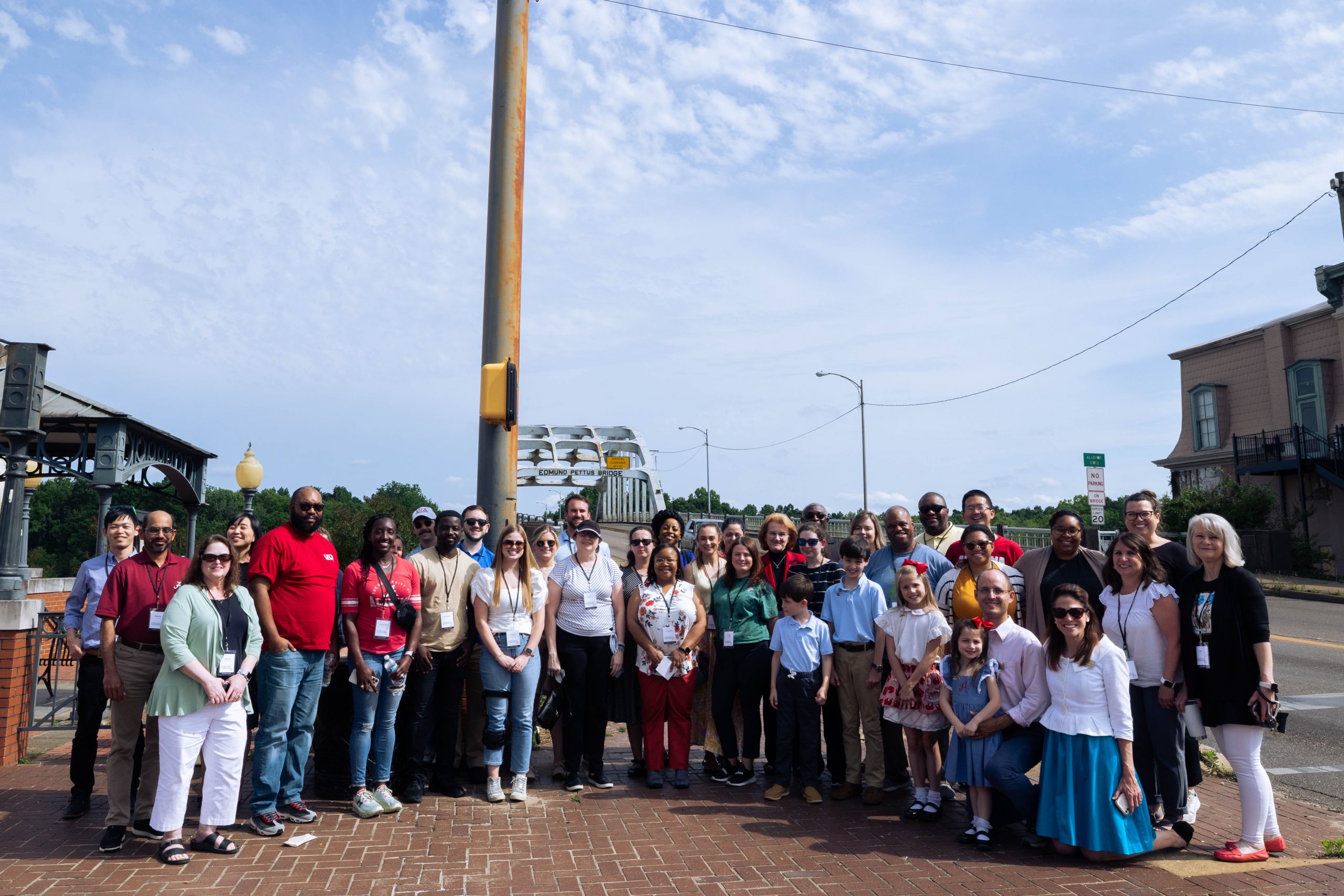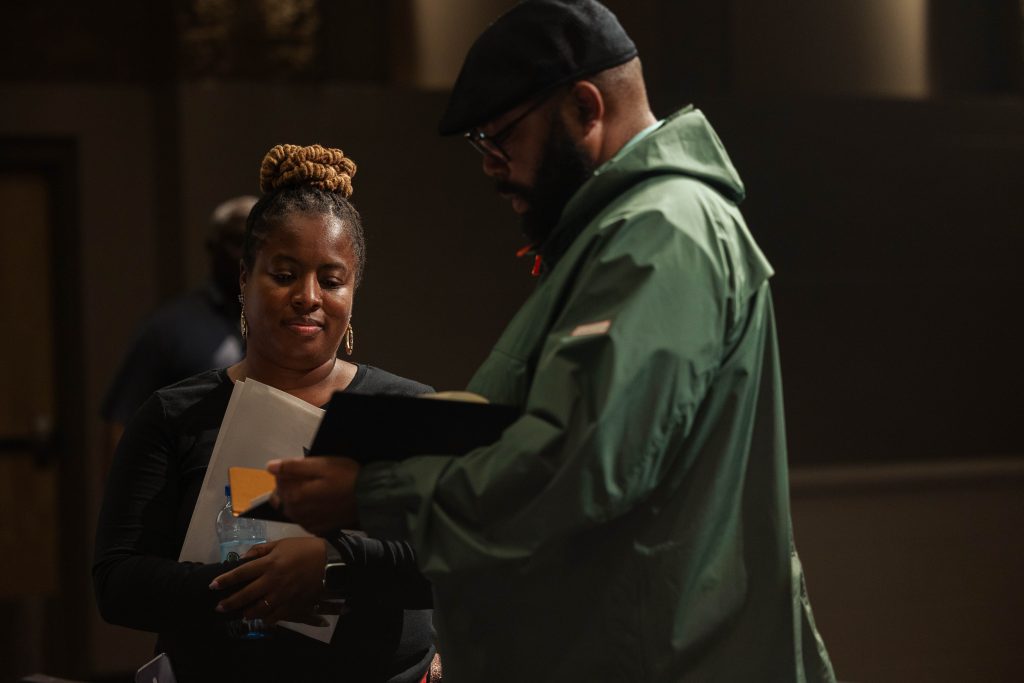
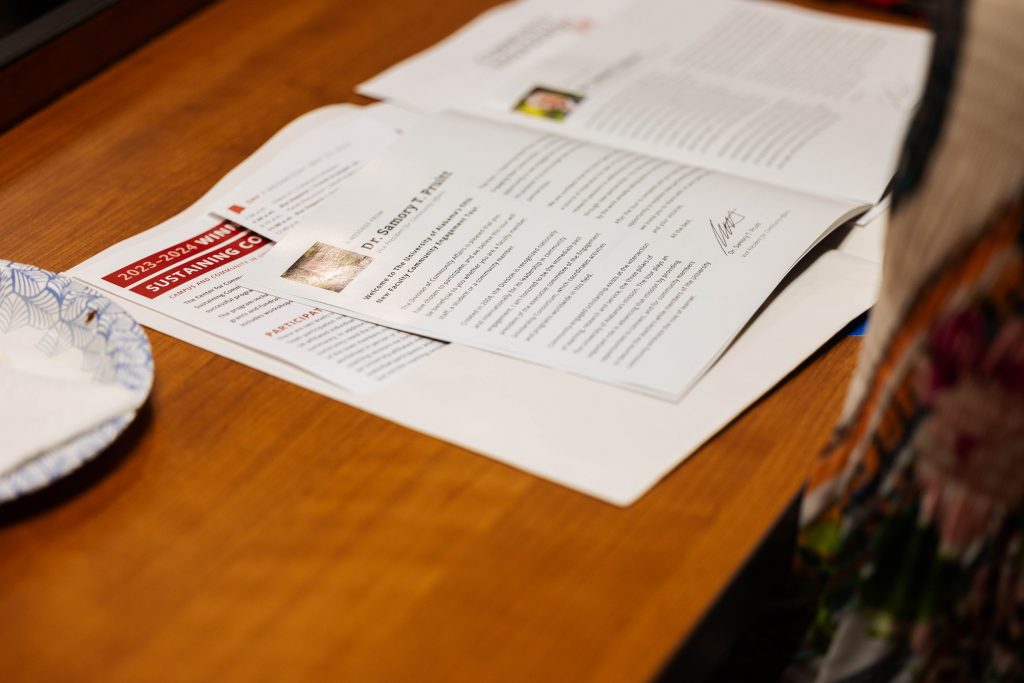
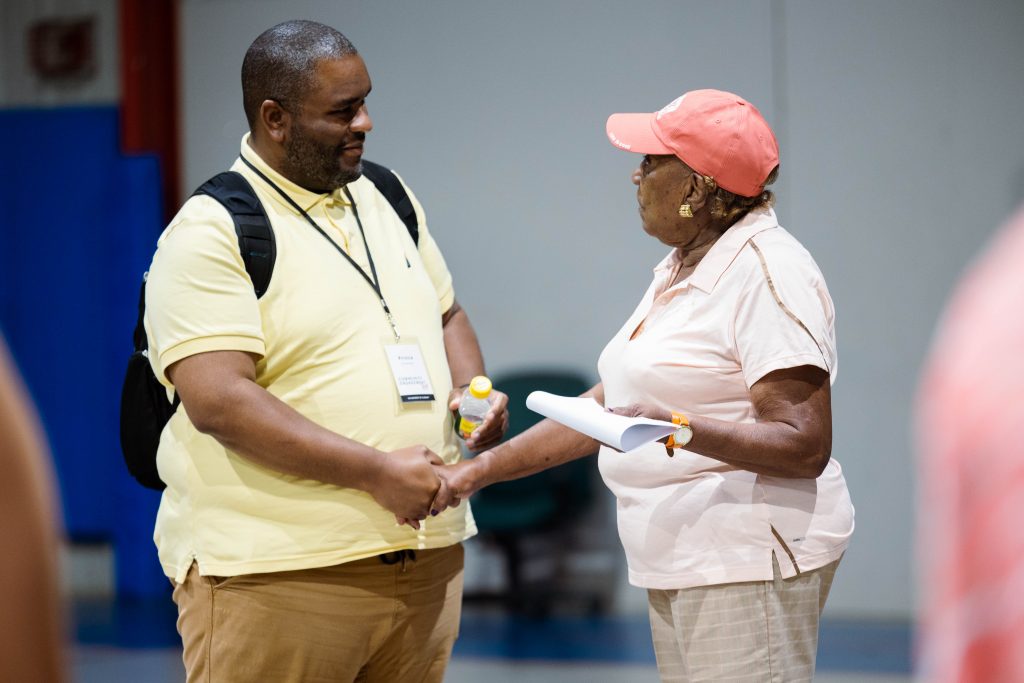
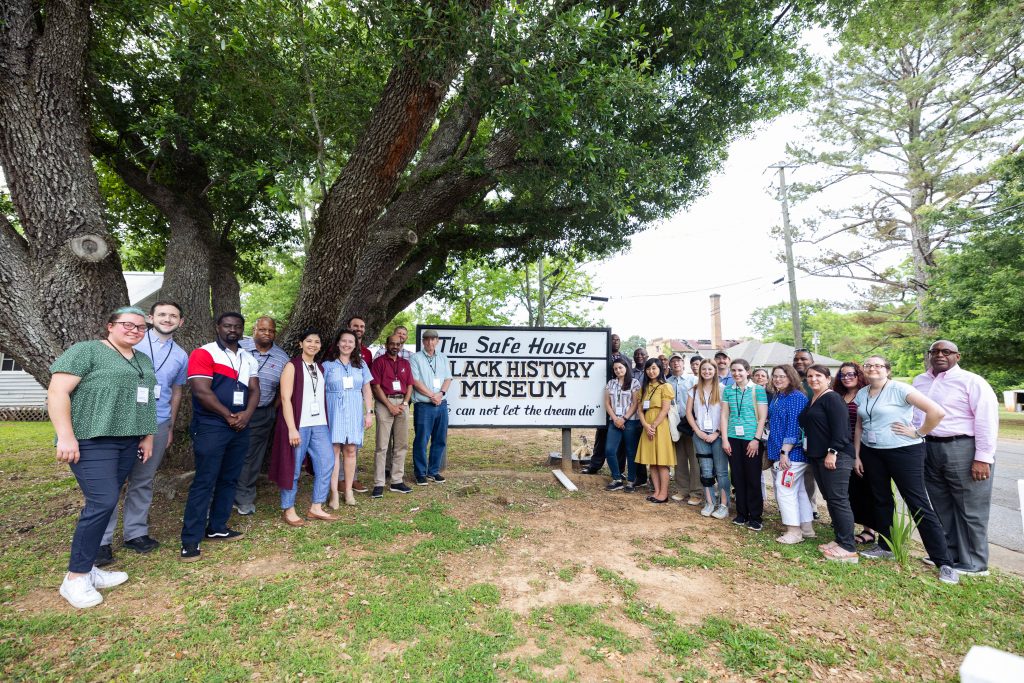
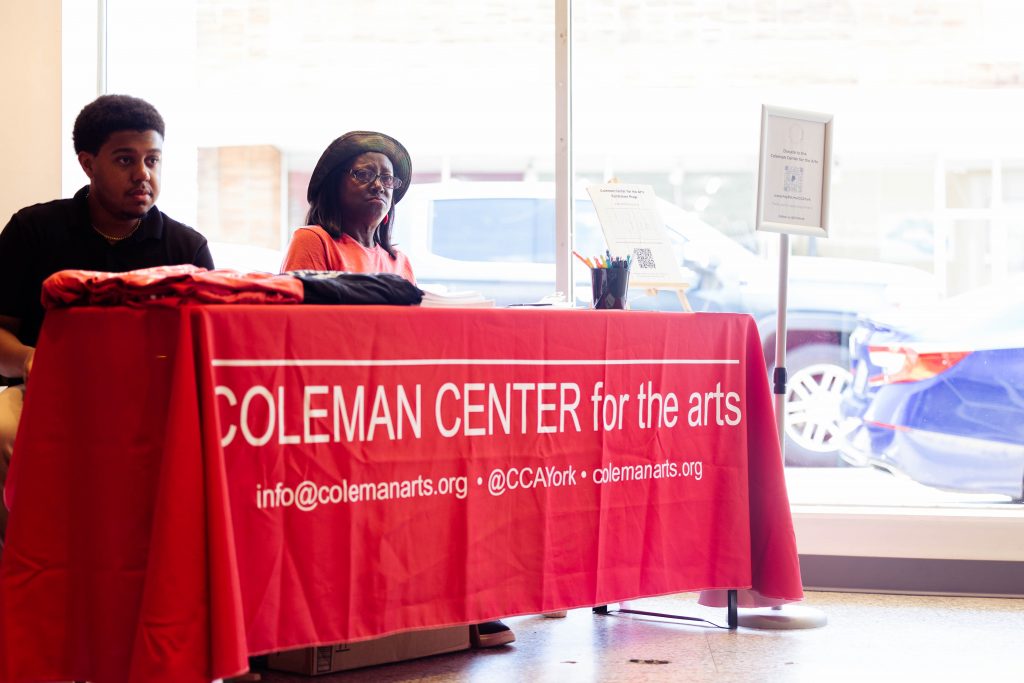
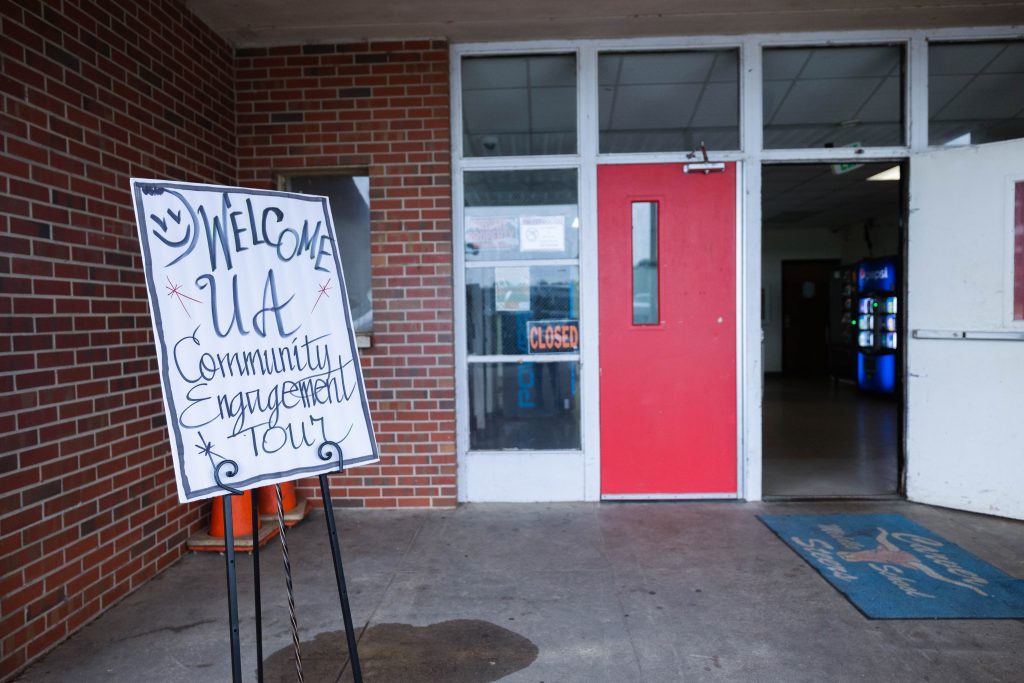
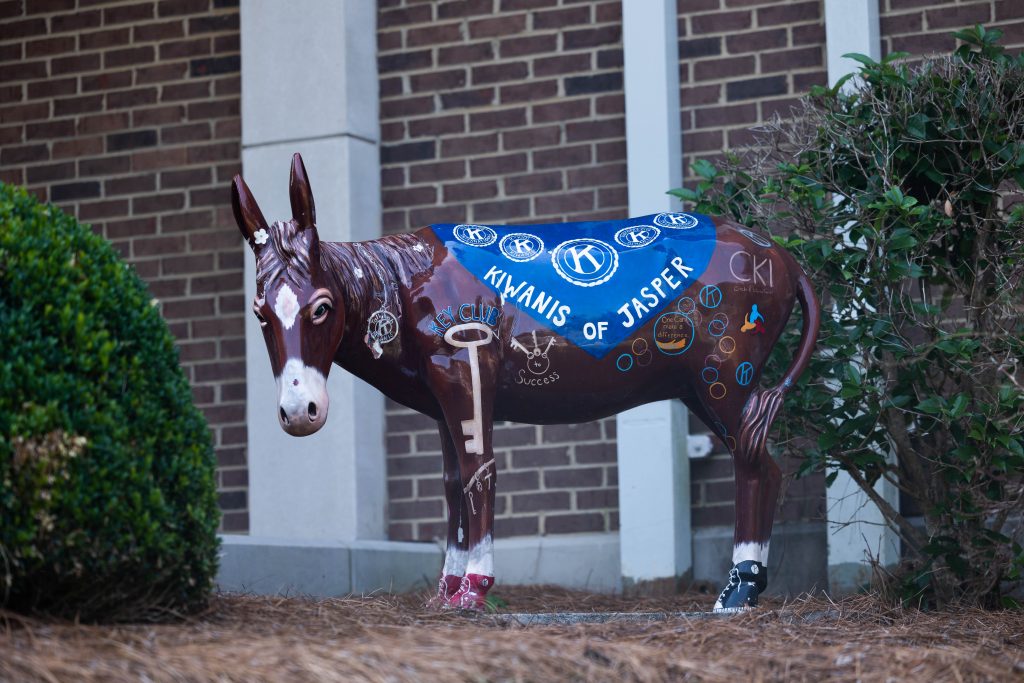
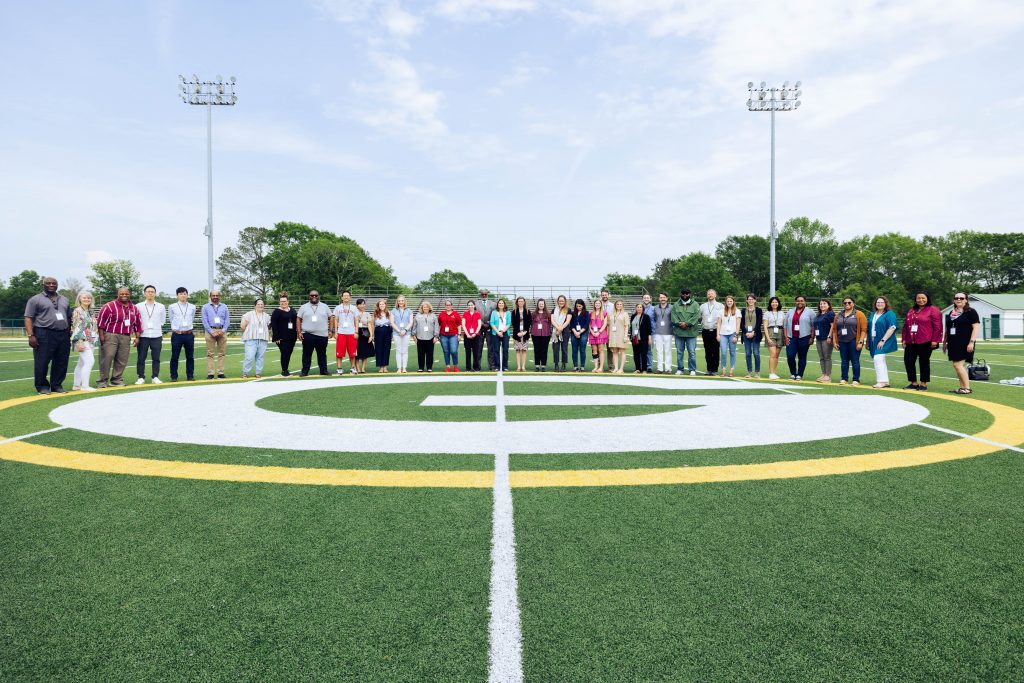
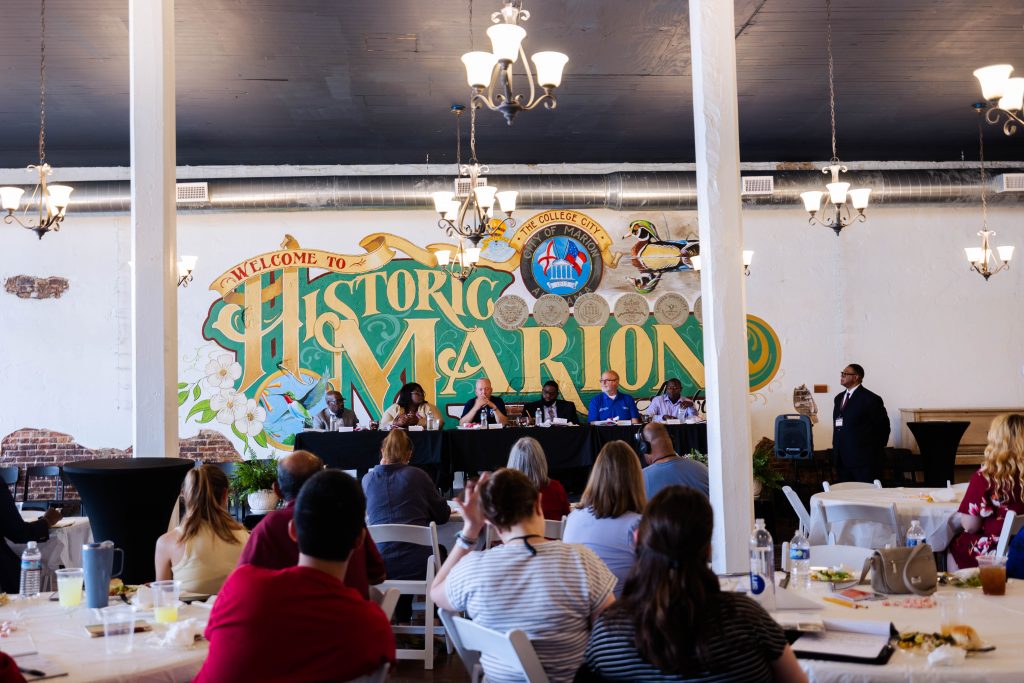
Author: Dr. Elisabetta Zengaro | Communications Specialist, Division of Community Affairs
2023 New Faculty Community Engagement Tour (NFCET)
May 10 – May 12
Time09:00 a.m. – 09:00 p.m.
Location Various Counties in the Black Belt Region
Walker, Pickens & Tuscaloosa Counties
Greene, Sumter & Hale Counties
Marengo, Perry & Dallas Counties
The 2023 New Faculty Community Engagement Tour (NFCET) introduced University faculty, staff, students and community members to areas of community-engaged partnerships across various counties in the Black Belt region, Wednesday through Friday, May 10–12.
Each day, faculty, staff and students traveled by bus to a new area of the Black Belt and listened to panels of community leaders highlighting areas for collaboration in community-engaged scholarship.
I think it’s a wonderful opportunity to especially network and just hear from the community and hear about how I can give back to it. I’m an Alabama native, so it’s always good to just hear different stories from around the state.
Said by Katie Johnson, a graduate student in the Center for Community-Based Partnerships, who graduated with her master’s during the 2023 spring commencement
“I’ve actually certainly enjoyed it, and I think a lot of other students will likely enjoy it as well, and one of the big reasons behind that is it actually helps them explore parts of Alabama,” echoed Edwin Lee, a doctoral student in communication and information sciences. “These [Tours] allow for you to get into the doorstep of a project that you’ve actually dreamed of and hoped to be involved.”
On the first day, Tour attendees visited Walker, Pickens and Tuscaloosa counties. The second day included stops in Greene, Sumter and Hale counties. The Tour concluded on Friday, May 12 with stops in Marengo, Perry and Dallas counties.

Walker, Pickens & Tuscaloosa CountiesDay 1
The Tour began at Bevill State Community College in Jasper, marking the Tour’s second-ever stop in Jasper.
Located in Jasper, the Walker Area Community Foundation received the 2023 UA Council on Community-Based Partnerships Community Partner Distinguished Community-Engaged Scholar Award. Tour attendees heard from members of the Foundation, who expressed community needs and shared ongoing collaborations the Foundation supports.
Cristy Moody, executive vice president of the Foundation, shared how the Foundation partners with UA through placing UA students in internships related to their field of study across Walker County. Moody said six UA students are currently scheduled to begin internships with Walker County over the summer.
At the second stop in Gordo, panelists spent the bulk of the discussion discussing challenges in education facing the county with the ongoing teacher shortage in Alabama, expressing interest in partnering with faculty and staff to support students’ success.
Continuing the discussion on students’ success, Tour-goers ended the first day at The Alberta School of Performing Arts in Alberta. One panelist described Alberta as the “gateway” to UA, located just down University Boulevard, which prompted faculty, staff and students to consider how they can bridge the gap between the University and community. Some of those areas that attendees and panelists discussed support for were youth development programs, financial literacy and homeownership.
Jacquie Johnson, senior director of community affairs and team development for Alabama One Credit Union, encouraged attendees to figure out how they can support individuals struggling to make ends meet, or who the credit union industry refers to as ALICE® (Asset Limited, Income Constrained, Employed).
How do we go and help those individuals that work every day and can’t get government assistance because they have employment, but they have limited assets or limited cash or limited funds? I would charge you all to go back and study ALICE®. I want now for us to figure out where our ALICES® are and how we can help them.
Said by Johnson

Greene, Sumter & Hale CountiesDay 2
The first stop of the second day was in Greene County. Attendees gathered in the Robert H. Young Community Center in Eutaw, formerly known as the old Carver School, the site of the historic 1965 student boycott and protest that took place during the civil rights movement.
Panelists discussed programs to strengthen community and family ties. Lillie Jones-Osborne, district judge for Greene County and chairman of the Greene County Children’s Policy Council, discussed programs that the Council hosts to connect families in the community. Mollie Rowe, director of Eutaw Housing Authority, mentioned initiatives the Housing Authority takes to encourage homeownership. Panelists also described the challenges facing Greene County in education and healthcare, creating opportunities for university partnerships.
The group stopped for lunch in York, where panelists discussed economic challenges and areas for growth within the city. Next, the tour traveled to Hale County for its final panel discussion in Greensboro at the Salem Missionary Baptist Church.
While in Greensboro, panelists shared their stories of overcoming barriers in education and healthcare to strengthen community connections. For example, the nonprofit NAPS (National Association for the Prevention of Starvation) provides free medical and dental services across the Black Belt. Additionally, the Hale County College and Career Academy offers career education programs.
The day concluded with a tour of the Safe House Museum, the home where Dr. Martin Luther King Jr. sought shelter from the Ku Klux Klan during the civil rights movement.

Marengo, Perry & Dallas CountiesDay 3
The final day of the NFCET began with a stop in Marengo County, where attendees gathered in the Theo Ratliff Activity Center in Demopolis, named after former professional basketball player Theo Ratliff, who is from Demopolis. The center unites the community through programming and events on recreation, youth development, health and education. Panelists mentioned areas for university partnerships, such as patient satisfaction in healthcare settings and in museum studies.
Breaking for lunch in Perry County, the group met at the Marion Arts Center, home to the civil rights exhibit, “It Started in Marion,” which highlights Marion’s role in the civil rights movement. Panelists called on faculty, staff and students to consider how to match their talents with community needs.
When you talk about planting seeds, also make sure that you are connecting the seeds that are actually doing the work, so we can have a bigger crop.
Said by Portia Shepherd, executive director of Black Women Rising
At the next stop in Selma, the group reconvened at Selma Dallas County Public Library to discuss areas for collaboration in Selma and how to support the region in the aftermath of the Jan. 12 tornadoes.
At the Black Belt Community Foundation, our tagline is taking what we have to make what we need. It is going to take all of us working together. … [Dr. Samory Pruitt] said the core value of universities is to help improve the quality of life, and we need assistance and we need help in Dallas County and Selma and throughout the Black Belt.
Said by Chris Spencer, chief community engagement officer for the Foundation
The Tour concluded with the group walking across the Edmund Pettis Bridge and touring the Civil Rights Memorial Park in Selma before boarding the bus back to Tuscaloosa.
